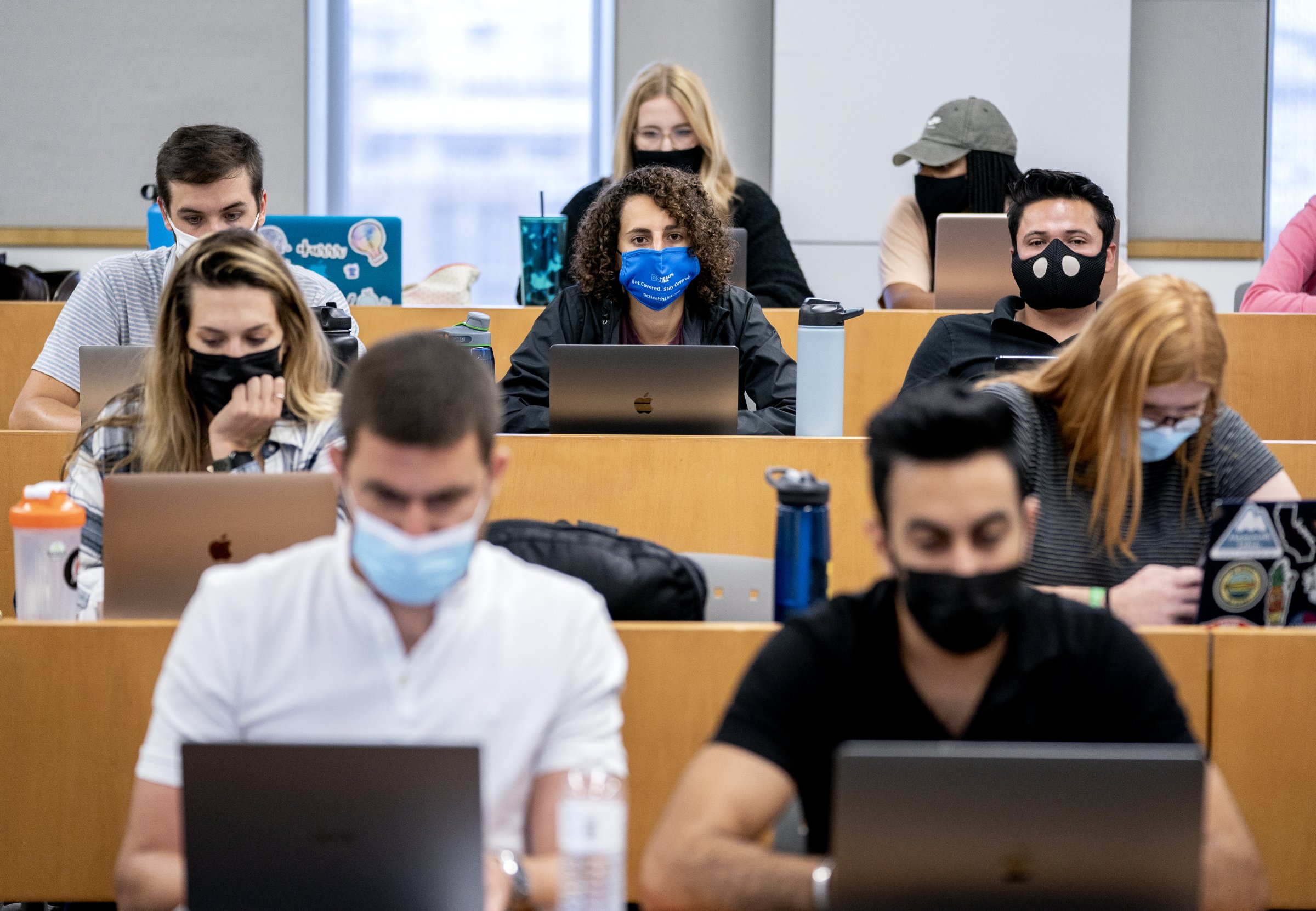
A record number of women enrolled in top MBA programs in 2021 after a year in which the pandemic forced hundreds of thousands of women out of the labor force and progress stalled toward achieving gender parity in business schools.
Women account for 41% of students in full-time MBA programs at the 56 member schools of the Forté Foundation, a nonprofit that advocates for women’s access to business education and released the new enrollment figures on Friday. That figure, an increase from 39% in 2020, is the highest female enrollment rate in the 20 years since Forté was founded.
The uptick matters, advocates say, because graduating from such programs can propel women’s careers and lead to more leadership opportunities in the workforce.
“The reason that this particular pipeline is really important is because of where it leads, and how quickly and how much of an opportunity there is for women to be in those leadership roles,” says Forté Foundation CEO Elissa Sangster. “We want to make sure that those pathways are wide open for women.”
About two-thirds of the foundation’s member schools said there was an increase in the percentage of women who enrolled this year.
Read more: I Tried to Live Off Women-Owned Businesses. Turns Out Men Still Run Everything
And 10 of the schools reported women’s enrollment had reached 45% or more this year, including three — the George Washington School of Business, the Wharton School at the University of Pennsylvania and the Johns Hopkins Carey Business School — that enrolled more than 50% women, according to the Forté Foundation. By comparison, no schools had 45% or more women enrolled 10 years ago, the foundation reported.
Sangster says the group is aiming to reach gender parity in MBA programs by 2030, but even if that happens, translating it to the working world remains a long way off. Women make up just 8.2% of Fortune 500 CEOs, and the pandemic forced many women out of the workforce, further hindering their ability to reach those leadership roles. In July, women’s labor force participation rate was still about 3% below the pre-pandemic rate.
The percentage of women in leading MBA programs has inched upward in the last decade, from 31.8% in 2011 to 41.2% today, according to Forté data. In the 2018-19 school year, women earned 48% of business master’s degrees, according to the National Center for Education Statistics. Forte’s goal is to see an equal number of men and women enrolled in MBA programs in the next decade at its member schools, which include Harvard Business School and the Stanford Graduate School of Business in the U.S. and the London Business School and the IESE Business School in Europe.
Read more: Women Are Exiting the Labor Force en Masse, and That’s Bad for Everyone
“I think that it really is about building that pipeline,” Sangster says. That includes educating women about MBA programs when they’re still in college, encouraging them to pursue male-dominated majors such as finance, providing resources to help as they apply to graduate school and getting companies to invest in their professional development.
It’s common for enrollment to rise during an economic downturn, as people who are unemployed return to school to gain new skills. But many women weren’t simply laid off, but were forced to suspend their careers to care for aging relatives or for children suddenly learning at home.
That has fueled calls for the federal government to pass legislation that would make child care more affordable. But it will also be incumbent on companies to work to reverse that trend, Sangster says.
“What are you going to do to re-engage them or to identify other people that can become a part of your leadership pipeline?” she says. “Companies need to be thinking about that, or they are going to find themselves without the talent they want.”
More Must-Reads from TIME
- Cybersecurity Experts Are Sounding the Alarm on DOGE
- Meet the 2025 Women of the Year
- The Harsh Truth About Disability Inclusion
- Why Do More Young Adults Have Cancer?
- Colman Domingo Leads With Radical Love
- How to Get Better at Doing Things Alone
- Michelle Zauner Stares Down the Darkness
Write to Katie Reilly at Katie.Reilly@time.com